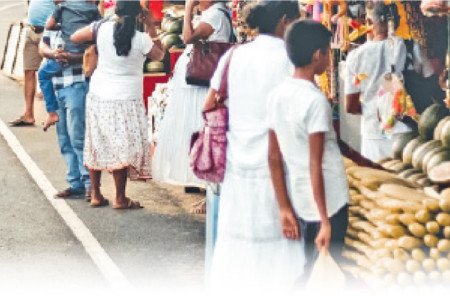The present government has turned to the IMF for the 17th time to address the 2022 economic crisis and lay the groundwork for sustainable, inclusive growth.
President Ranil Wickremesinghe recently warned that renegotiating with the IMF, as suggested by some presidential candidates, could undo economic progress and cause another collapse of Sri Lanka’s economy.
He stressed that the government has already secured all possible assistance from the IMF, the Asian Development Bank, the World Bank, the Exim Bank of China, and 17 other countries.
Chandrasekara Amarasekara, Central Bank Assistant Governor and Secretary to the Monetary Policy Board, stated that any reversal of current policies would be unthinkable and could result in deviating from the IMF programme.
He emphasised that the world is closely watching Sri Lanka and that the IMF programme is crucial for building trust.
He noted that while adjustments within the programme might be possible, any significant shift in fiscal or monetary policy could have severe consequences for Sri Lanka.
However, Senior IMF Mission Chief Peter Breuer mentioned in an emailed statement to the Sunday Times Business that the third review of Sri Lanka’s economic reform programme for the US$2.9 billion Extended Fund Facility will be discussed with the government after the presidential election.
Mr. Breuer explained that IMF programmes include periodic reviews to reassess and adjust the programme to ensure objectives are met.
While Sri Lanka has made good progress, the recovery remains precarious, and continuing with reforms is essential to achieving stable and inclusive economic growth and avoiding another crisis.
He pointed out that Sri Lanka has not yet achieved the fiscal balance, net of interest payments (primary balance), needed to restore debt sustainability.
Achieving this will require ongoing revenue efforts and spending restraint, with a primary balance of no less than 2.3 per cent of GDP needed from 2025 onwards, based on a realistic budget.


